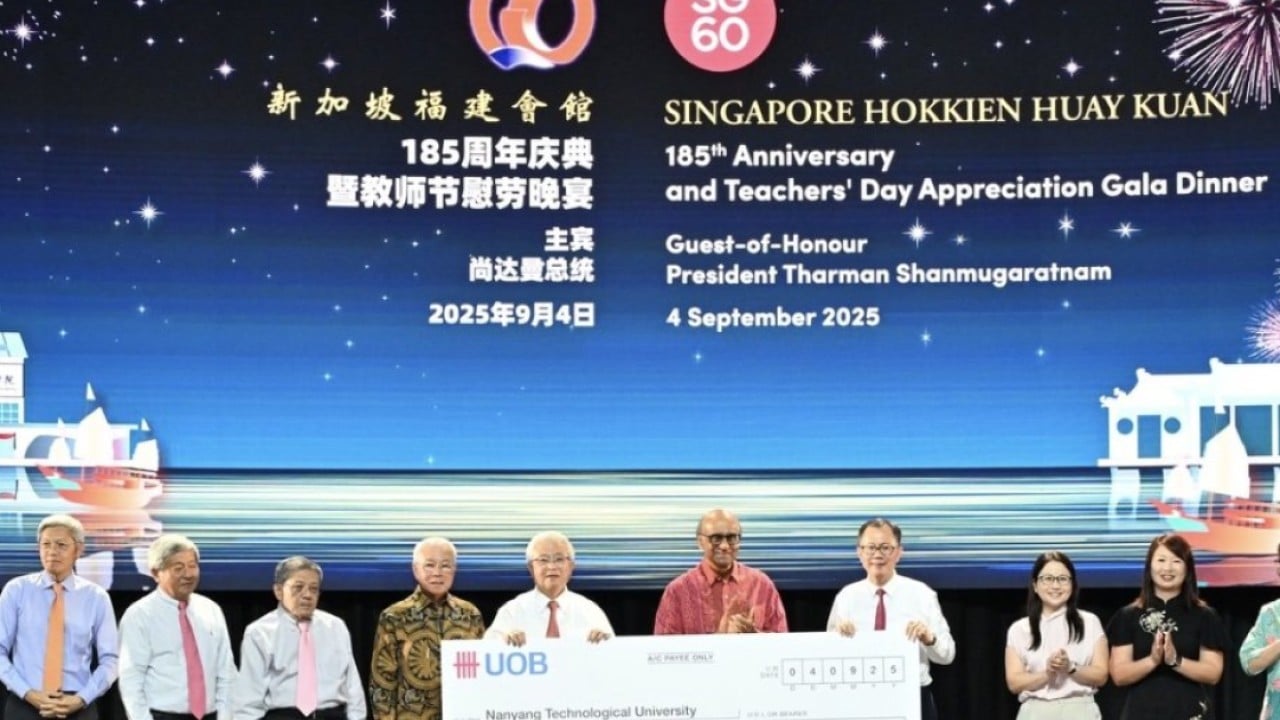Emma Choo, a four-year-old Singaporean, possesses an ability that is rare among her young peers – she can greet people in Hokkien, a Chinese dialect that has plummeted in usage in Singapore in recent years.
Advertisement
Catherine Shih, Emma’s 52-year-old mother, is raising her daughter to learn Hokkien along with Mandarin and English out of concern that the younger generation is forgetting their heritage, especially after the death of Shih’s Hokkien-speaking mother and her father developed dementia.
“Nowadays, a lot of youngsters don’t speak Hokkien. We have to pass the dialects down to them. If not, in the future they won’t know any Hokkien and they won’t know their roots,” said Shih, a freelance carer.
“To me, Hokkien is more qingqi [elegant] than Mandarin, especially if you’re speaking it to the elderly.”
On Thursday, the Singapore Hokkien Huay Kuan celebrated its 185th anniversary, where it donated S$1.85 million (US$1.44 million) to the Nanyang Technological University. The funds will go towards supporting students with special educational needs.
Advertisement
The clan association said an additional S$600,000 would support research at NTU’s Chinese Heritage Centre on Chinese dialect groups, in particular Hokkien, to help its preservation and foster a deeper understanding of dialect heritage, identity and history in multicultural societies.
Founded in 1840, Singapore Hokkien Huay Kuan’s main objectives include promoting goodwill and fellowship among Singapore citizens with roots in China’s Fujian province, improving the lives of the Singapore Hokkien community and advancing the Chinese language and Chinese culture in Singapore.

